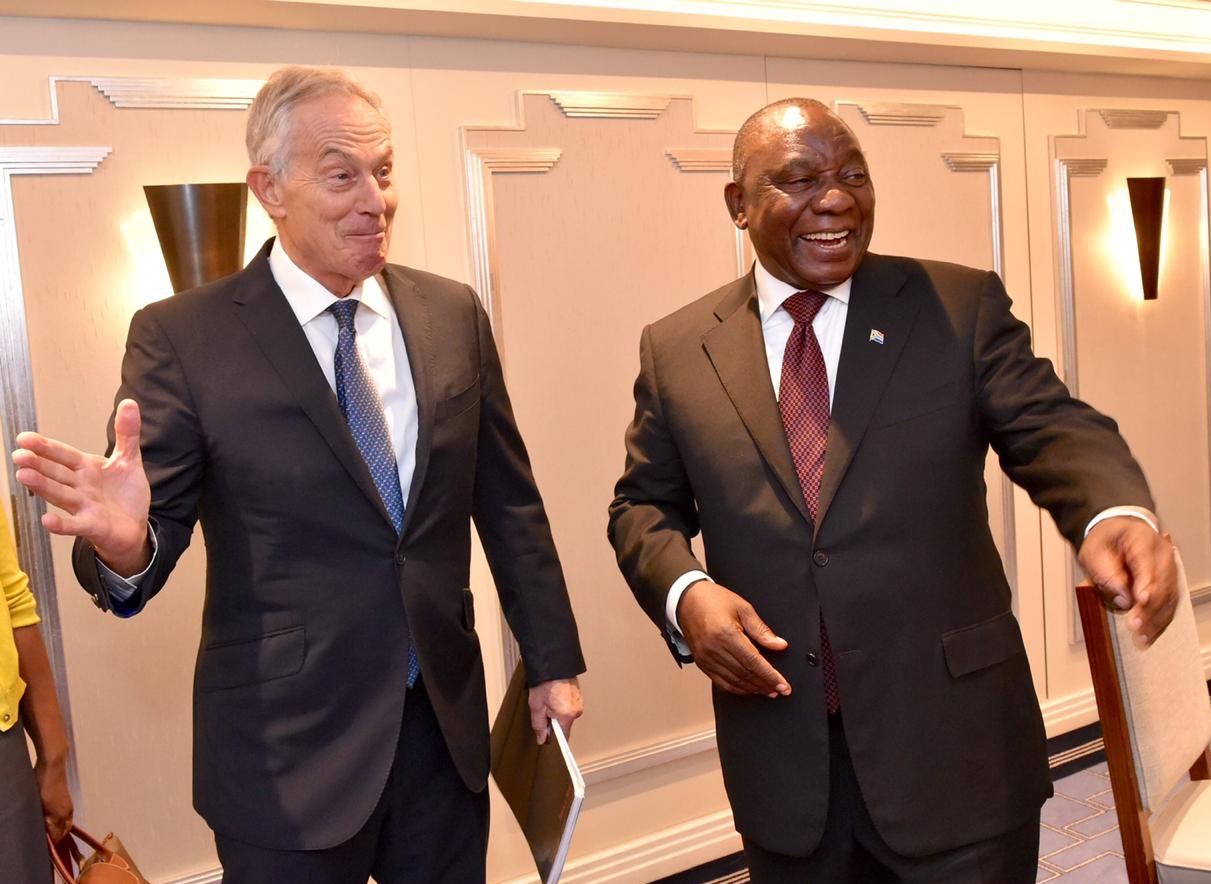Riyaz Patel
In its quest to position itself as an investment destination of choice, South Africa has placed good governance, growth enhancing reforms and macro-economic stability at the heart of its investment strategy, President Cyril Ramaphosa told a high powered gathering at the FT Africa Summit in London Monday.
“We have world class infrastructure, a sophisticated and well-regulated banking and financial services sector, an independent judiciary, strong institutions, an efficient revenue service, a diverse manufacturing base and an able workforce.”
Ramaphosa said South Africa has, since last year, been implementing key structural reforms “to address perennially weak growth, ignite economic activity, restore investor confidence and create jobs.”
In addition, Ramaphosa said, the so-called energy road map is being finalised. “We have taken steps to provide greater policy certainty in areas such as mining, oil and gas and telecoms as part of efforts to create a stable environment for investment.”
FT Africa Summit – Read President Cyril Ramaphosa’s keynote address here:
Furthermore, he told the gathering of decision-makers, financiers, investors, “we have initiated the release of the high-demand broadband spectrum, which will bring down data costs and encourage investment, and as part of attracting skilled professionals and growing tourism, we have prioritised immigration reform and changes to the visa regime.”
Ramaphosa also briefed the Summit on sensitive issue of land reform, and its importance to economic growth. “We are undertaking a process of accelerated land reform guided by the recommendations of an expert panel.
“They have presented a comprehensive package of measures to resolve what is not only one of the great injustices of our colonial and apartheid history, but is also an impediment to faster, more inclusive growth.”
He underlined all efforts relating to land reform are “in line with the prescripts of our Constitution, committed not only to safeguard property rights, but also to ensure that all our people have an equal opportunity to exercise such rights.”
Ramaphosa said prudent fiscal policies coupled with sound macroeconomic management was key to growing the economy, creating jobs and supporting investment.
Conceding that the fiscus is under huge pressure, the president said South Africa is committed to ensuring debt sustainability, improving the composition of spending, and reducing risks arising from contingent liabilities, especially in the country’s state-owned enterprises.
“One of the greatest challenges to our economy is the dire state of our electricity utility, Eskom, which has huge debt, severe liquidity problems and extensive operational challenges.”
Ramaphosa told delegates that South Africa has embarked on a process to “strengthen governance, cut costs, improve revenue collection and increase energy availability and plant performance.”
He explained that this is part of a longer term plan for the company that will see it unbundled into three separate entities responsible for generation, transmission and distribution.
Ramaphosa said South Africa is keen to take advantage of the appetite for diversification among investors.
“We are therefore developing plans for industries with high growth potential, such as automotive, clothing and textiles, gas, chemicals and plastics, renewable energy, oceans economy, agriculture and the high-tech industries.”
A strong focus for Pretoria, Ramaphosa added, is to expand trade and investment links with the rest of the Southern African region and the continent at large.
“As the largest manufacturing economy in sub-Saharan Africa, the AfCFTA presents immense opportunities for South Africa,” said Ramaphosa.
He further pointed out that “we are the largest exporter of trucks to the rest of Africa, and the fourth largest exporter of cars.”
Ramaphosa said exports to other African countries directly supports about 250,000 South African jobs.

But South Africa is looking also looking beyond the continent for opportunities and partnerships.
Most recently, Ramaphosa said, South Africa and five other countries in the Southern African region concluded a new trade agreement with the United Kingdom in the event of a ‘no-deal Brexit.’
He said this agreement is important “for the thousands of South African workers whose jobs are dependent on bilateral trade with Britain, and for the investors who have utilised South Africa as an export base to the UK and the rest of the world.”
Speaking to the second South Africa Investment Conference which forms part of his drive to attract $100bn in new investments over a five year period, Ramaphosa said the focus at this year’s conference, scheduled for November, will be on moving “beyond commitments to bankable projects that are ready to be implemented.”
Overall, the president said, South Africa will only be able to overcome its economic and social challenges, through social compacts among all partners – government, labour, business and civil society.
